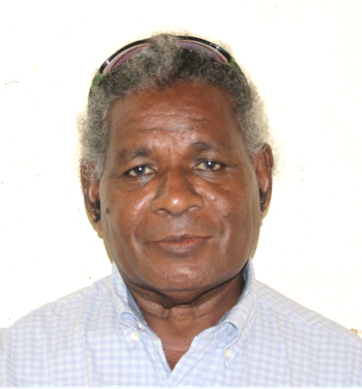
Dr. Joseph Fisher
Head of School
Welcome to the School of Electrical & Communications Engineering
Harnessing the Power of the IoT, AI and Big Data, and Sustainable Energy in Innovating a Smart Future
I take this opportunity to welcome you to visit the School of Electrical & Communications Engineering website. Please feel free to view the research profiles of the hardworking staff of the School. The staff have immense teaching and research backgrounds. Other contents of the website include archives of the past, the course handbook, and other events happening in the department. For aspiring current creators, voltage visionaries, and those eager to transverse the electromagnetic waves into space, this is the place to spark your imagination and ignite your passion.
The School of Electrical and Communications Engineering offers undergraduate programs leading to a Bachelor’s Degree (Honors) in Electrical Engineering. The undergraduate courses cover many disciplines such as communication engineering, power systems engineering, electronics, applied electromagnetics, control systems engineering, and computer engineering. It also covers many other sub-disciplines, such as electric machines, power electronics, antennas and propagations, instrumentation and process control, mechatronics and robotics, industrial electronics, consumer electronics, sensors and measurements, and computer networking. Further, the School offers postgraduate courses leading to a Master of Philosophy (MPhil) and a Master of Engineering (M.Eng.) in Communications Engineering and Ph.D. programs in either Communication or Power Engineering.
The research programs in the School are continually developing to keep pace with technological advancements. In embracing digital transformation, the Communications Engineering stream has embarked on research in networking through mobile and wireless systems, data communications, and Internet-of-Things. The School is also excited to introduce a new stream in Computer Engineering that will encompass micro-controller-base embedded systems design, big data analytics, robotics, and machine learning. Furthermore, as the world embarks on measures to mitigate the abyssal of climate disasters, our research programs on energy are aligned towards innovative sustainable energy of the future. The introduction of AI in energy systems will revolutionize renewable energy, making it reliable, efficient, clean, and environmentally friendly. The research on sustainable energy is oriented towards microgrids in off-grid systems for remote and fragmented communities in addressing the lack of electricity in PNG where 80% of the 9 million population have no access to electricity.
In addition, the School of ECE is diversifying its program by enrolling students in its Diploma Courses under the Electrical Engineering Alternate Pathway Program (EE-APP). It is a three-year program with over 100 students enrolling every year to pursue industry-based certifications through Cisco Academy, Huawei Academy, and City & Guilds Academy. All three academies have been assigned separate computer laboratories in the Department. The Diploma programs provide an alternate pathway for the vast majority of learners who finish school after compulsory education without any form of trade certifications. Further, the EE-APP Diploma courses will become a bridging program into the Degree courses in Power, Communications, and Computer Engineering.
